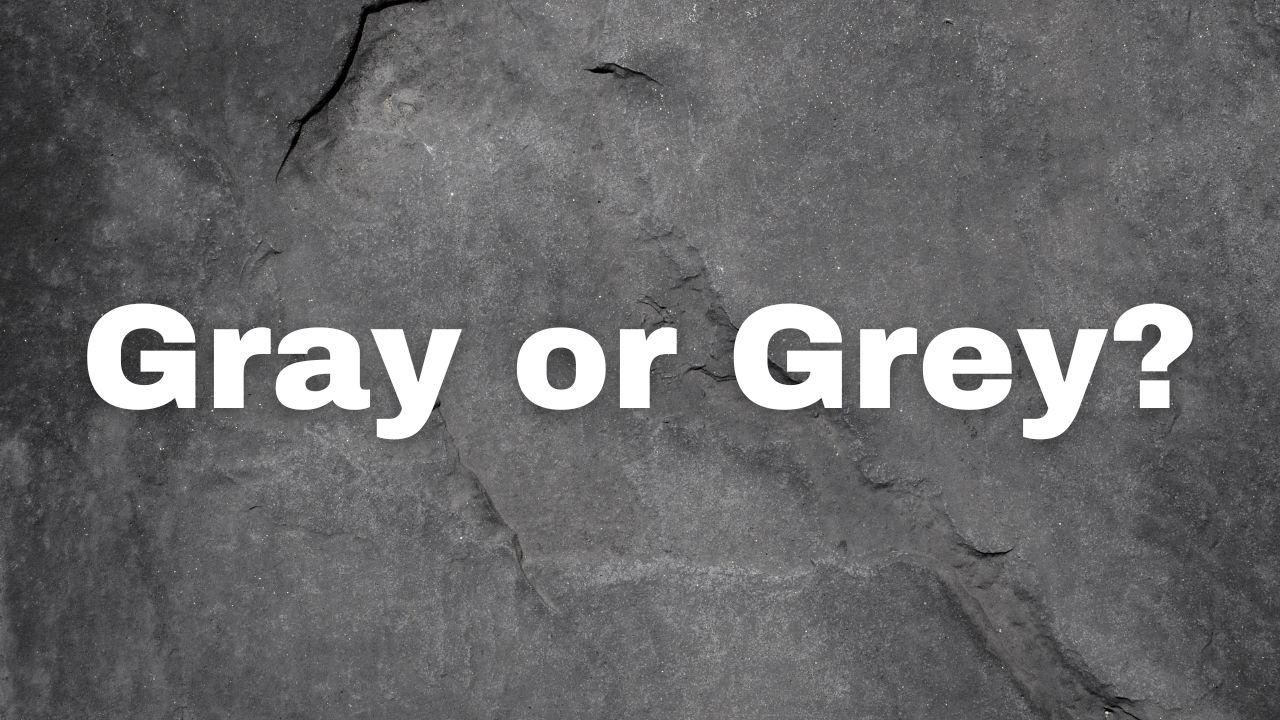Table of Contents
Gray or grey? The age-old question that has puzzled many English-speaking individuals for generations. Is it the American version with an ‘a’ or the British version with an ‘e’? With both spellings used interchangeably, it’s easy to become confused about which one is correct. But fear not, we’re here to help guide you through this spelling labyrinth and provide you with a definitive guide on how to properly spell the color gray/grey. Whether you’re a language enthusiast, writer, or simply someone looking for clarity on this issue, read on to discover everything there is to know about this perplexing matter.
The History of the Spelling of Gray/Grey
The history of the spelling of gray/grey is an interesting story that dates back centuries. The word itself has its roots in Old English language, where it was spelled “graeg.” As time passed and the English language evolved, so did the spelling of this color.
In Middle English, the word was spelled “grei,” which eventually evolved into modern-day “gray” or “grey.” It’s worth noting that both spellings are considered correct and interchangeable today.
Interestingly enough, there is no clear explanation as to why there are two acceptable spellings for this color. Some argue that it may be due to regional differences or even personal preference. Others speculate that different industries or fields may have adopted one spelling over another.
Regardless of their origin, both spellings are widely recognized and accepted throughout the world. So whether you prefer to use gray with an ‘a’ or grey with an ‘e,’ rest assured knowing you’re not alone in your choice!
Why is There More Than One Way to Spell the Color?
Have you ever wondered why there are two different spellings for the color we know as gray/grey? The answer lies in the evolution of language.
The English language has borrowed words from various languages, resulting in a diverse vocabulary. In this case, both spellings have their roots in Old English and Germanic origins. Gray comes from the Middle English word “grey” while grey is derived from the Old High German word “grau.”
Over time, these two spellings became interchangeable, and both were accepted as correct by influential dictionaries such as Oxford English Dictionary and Merriam-Webster. However, it’s worth noting that there are subtle differences between how they’re used today.
Some people argue that gray is more commonly used to describe cooler tones while grey is associated with warmer hues. Others believe that gray is an American spelling while grey is British or Australian.
Regardless of which spelling you choose to use, just make sure to be consistent throughout your writing!
Which spelling is more popular in different parts of the world?
When it comes to the spelling of “gray” or “grey,” there seems to be a divide in usage across different parts of the world. In general, American English tends to favor “gray” while British English tends to favor “grey.” However, this is not a hard and fast rule as both spellings can be found in either dialect.
In Canada and Australia, both spellings are commonly used. In fact, Canadian English has been known to switch between the two depending on context. For example, they may use “gray” when referring to shades of black and white but use “grey” when referring to colors with more blue or green tones.
In India, where English is spoken as a second language by many people, it seems that both spellings are used interchangeably without any clear preference. This could be due in part to the influence of British colonization on Indian culture.
It’s important for writers and speakers of English around the world to understand that either spelling is acceptable and widely understood regardless of regional preferences. Choosing which one you prefer may ultimately depend on personal style or audience preference rather than strict adherence to any particular dialectical rules.
Also Read: Exploring the Benefits of Trade Schools: What to Expect and How to Enroll
How to Choose the Right Spelling for Your needs
When it comes to choosing the right spelling for your needs, there are a few things to consider. First and foremost, consider your audience. If you are writing for an international audience, using “grey” may be more appropriate as it is the more commonly accepted spelling outside of the United States.
Another factor to consider is personal preference and consistency within your own writing. If you have always used one particular spelling throughout your work, it may be best to stick with that rather than switching back and forth between “gray” and “grey.”
It’s also important to note any specific guidelines or requirements set by a particular publication or style guide. For example, The Associated Press (AP) Stylebook recommends using “gray,” while The Chicago Manual of Style allows either spelling but suggests being consistent within a single document.
Ultimately, there is no right or wrong answer when it comes to choosing between “gray” and “grey.” It all depends on context, audience, personal preference and adherence towards existing guidelines if applicable.
Also Read: How to Calculate Water Density at Different Temperatures and Units?
Conclusion
The spelling of “gray” or “grey” may seem like a small detail, but it can have a significant impact on your writing. While both spellings are correct, there are some subtle differences in usage and popularity that you should consider when choosing which one to use.
Whether you prefer the American spelling of “gray” or the British spelling of “grey,” make sure to be consistent throughout your writing. And if you’re writing for an international audience, it’s always a good idea to check which variant is more commonly used in their location.
Ultimately, what matters most is that your message comes across clearly and effectively. So go ahead and choose the spelling that works best for you – just remember to stay true to your own style and voice while doing so!







